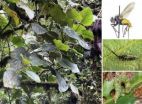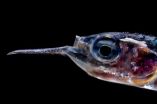(Press-News.org) Zurich, 7 February 2014. Since the end of 2011 when the scientific work of Professor Don Poldermans was first scrutinized there has been controversy in the medical world about the use of beta blockers in perioperative care.
The recent publication - and retraction for proper peer reviewing and revision - in the European Heart Journal (EHJ) of a paper by Professors Cole and Francis from Imperial College, questioning whether beta blockers in perioperative care could lead to a mortality increase brought the topic back into the public eye.
The EHJ has published an editorial (1) today addressing these questions.
In the editorial, Professors Thomas Lüscher, Bernard Gersh, Ulf Landmesser and Frank Ruschitzka highlight, among other points, that The meta analysis is mainly driven by the POISE trial that used very high dosages of metoprolol immediately before surgery Different dosing and starting time of betablockade before surgery may importantly determine outcome
A registry published in 2013 in JAMA (2) supports the use of perioperative blockade, at least in non-vascular surgery
Until today, only one of Prof Poldermans' manuscripts has been retracted, so the validity of his large beta blocker DECREASE trial published in the NEJM remains uncertain (3)
A proper clinical trial is needed in order to assess whether the use of beta blockers starting at a low dose several days before surgery - as has been recommended by the ESC Guidelines of 2007 - might be beneficial or harmful
The ESC Task Force led by Professors Steen Dalby Kristensen and Juhani Knuuti, is carefully revising all existing evidence and will present a new version of the ESC Guidelines on "Pre-operative Cardiac Risk Assessment and Perioperative Cardiac Management in Non-Cardiac Surgery" by this summer. These will try to answer two major issues: 1° Should beta blockers be continued in patients scheduled for surgery who are already on them? 2° Should beta blockers be started in patient undergoing surgery who have never received them previously?
Whether beta blockers in perioperative care are protective, safe or harmful continues to be a subject of debate. The new ESC Guidelines will try to clarify some of the controversial issues. As stated jointly by ACC/AHA/ESC (4), in the meantime, the current position is that "the initiation of beta blockers in patients who will undergo non-cardiac surgery should not be considered routine, but should be considered carefully by each patient's treating physician on a case-by-case basis."
INFORMATION: END
Beta blockers and perioperative care: EHJ editorial addresses controversy
2014-02-07
ELSE PRESS RELEASES FROM THIS DATE:
The biomass of ocean mesopelagic fish is 10 times higher than estimated
2014-02-07
The total stock of fish on the planet had been reckoned until today to be around 2,000 million tonnes. About half of them were thought to be mesopelagic fish, in other words, ones found at depths of between 200 and 1,000 metres in ocean areas.
However, an international team*, in which AZTI-Tecnalia researchers are participating and which is being led by the doctor in oceanography Xabier Irigoien, has discovered that its abundance could be at least 10 times higher than the original estimate. The results have been published in the journal Nature Communications.
Mesopelagic ...
New plant species a microcosm of biodiversity
2014-02-07
Biologists working in the Andes mountains of Ecuador have described a new plant species, a wild relative of black pepper, that is in itself a mini biodiversity hotspot. The new species, Piper kelleyi, is the sole home of an estimated 40-50 insect species, most of which are entirely dependent on this plant species for survival. This discovery is part of a larger project which focuses on the influence of plant-produced chemical compounds on biodiversity. The study was published in the open access journal PhytoKeys.
The chemical compounds produced by plants are source of ...
Avian flu variant stalks Egypt
2014-02-07
Since its first identification in Asia, highly pathogenic avian influenza—H5N1—has caused significant alarm in the scientific community. While the virus' primary target is birds—tens of millions have already died from it—it is capable of infecting mammals, including humans, causing serious illness and a frightening rate of mortality.
In a new study, Matthew Scotch, a researcher at Arizona State University's Biodesign Institute, tracks the spread of an H5N1 variant in Egypt—a country recently identified as a major epicenter for the virus. In results recently appearing ...
Substance in photosynthesis was at work in ancient, methane-producing microbes
2014-02-07
An international team of researchers led by scientists at Virginia Tech and the University of California, Berkeley has discovered that a process that turns on photosynthesis in plants likely developed on Earth in ancient microbes 2.5 billion years ago, long before oxygen became available.
The research offers new perspective on evolutionary biology, microbiology, and the production of natural gas, and may shed light on climate change, agriculture, and human health.
"By looking at this one mechanism that was not previously studied, we will be able to develop new basic ...
Finding could explain age-related decline in motor function
2014-02-07
SAN ANTONIO (Feb. 6, 2014) — Scientists from the School of Medicine at The University of Texas Health Science Center at San Antonio have found a clue as to why muscles weaken with age. In a study published Feb. 5 in The Journal of Neuroscience, they report the first evidence that "set points" in the nervous system are not inalterably determined during development but instead can be reset with age. They observed a change in set point that resulted in significantly diminished motor function in aging fruit flies.
"The body has a set point for temperature (98.6 degrees), ...
Gender influences symptoms of genetic disorder
2014-02-07
A genetic disorder that affects about 1 in every 2,500 births can cause a bewildering array of clinical problems, including brain tumors, impaired vision, learning disabilities, behavioral problems, heart defects and bone deformities. The symptoms and their severity vary among patients affected by this condition, known as neurofibromatosis type 1 (NF1).
Now, researchers at Washington University School of Medicine in St. Louis have identified a patient's gender as a clear and simple guidepost to help health-care providers anticipate some of the effects of NF1. The scientists ...
The fatality rate among hard drug users is 14 times higher than for the general population
2014-02-07
A new study analyses the risk factors and excess mortality among heroin and cocaine consumers admitted to treatment in Spain. The results reveal that the fatality rate among consumers of both drugs is 14.3 times higher than for the general population, while among those only using cocaine, it is 5.1 times higher.
In Spain the majority of deaths related to cocaine are not correctly certified and therefore up until now very few studies have been carried out that analyse the consequences of consuming these drugs in terms of mortality.
"Death certificates rarely include ...
Smithsonian reports GMO soybean pollen threatens Mexican honey sales
2014-02-07
Mexico is the fourth largest honey producer and fifth largest honey exporter in the world. A Smithsonian researcher and colleagues helped rural farmers in Mexico to quantify the genetically modified organism (GMO) soybean pollen in honey samples rejected for sale in Germany. Their results will appear Feb. 7 in the online journal, Scientific Reports.
David Roubik, senior staff scientist at the Smithsonian Tropical Research Institute, and colleagues developed the ability to identify pollen grains in honey in Panama and in Mexico during the 1980s and 1990s when they studied ...
Fish biomass in the ocean is 10 times higher than estimated
2014-02-07
With a stock estimated at 1,000 million tons so far, mesopelagic fish dominate the total biomass of fish in the ocean. However, a team of researchers with the participation of the Spanish National Research Council (CSIC) has found that their abundance could be at least 10 times higher. The results, published in Nature Communications journal, are based on the acoustic observations conducted during the circumnavigation of the Malaspina Expedition.
Mesopelagic fishes, such as lantern fishes (Myctophidae) and cyclothonids (Gonostomatidae), live in the twilight zone of the ...
'Steak-knife' teeth reveal ecology of oldest land predators
2014-02-07
The first top predators to walk on land were not afraid to bite off more than they could chew, a University of Toronto Mississauga study has found.
Graduate student and lead author Kirstin Brink along with Professor Robert Reisz from U of T Mississauga's Department of Biology suggest that Dimetrodon, a carnivore that walked on land between 298 million and 272 million years ago, was the first terrestrial vertebrate to develop serrated ziphodont teeth.
According to the study published in Nature Communications, ziphodont teeth, with their serrated edges, produced a more-efficient ...





